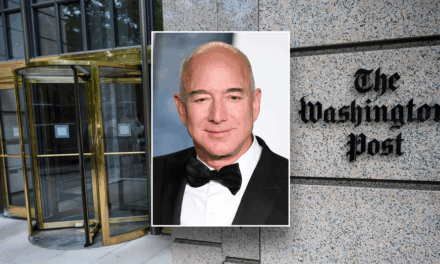In recent discussions surrounding corporate culture and societal responsibility, actress and producer Eva Longoria has emerged as a passionate advocate for Diversity, Equity, and Inclusion (DEI) programs. Longoria, known for her extensive work in television and film, has taken a firm stance, emphasizing that embracing DEI is not purely a moral obligation but also a strategy that yields substantial benefits for businesses.
Longoria’s fervor for DEI stems from her own experiences and her commitment to social justice. She argues that diversity should be woven into the very fabric of an organization, enriching thought processes and fostering innovation. “Diversity is about inviting others to the party; inclusion is about asking them to dance,” she states, underscoring the importance of not just having diverse representatives but actively involving them in decision-making processes.
Her career in Hollywood, while noted for its achievements, has also been marked by challenges many minority actresses face. Longoria, who gained fame through her role in “Desperate Housewives,” has continuously advocated for the representation of Latinx communities within the entertainment industry. In her view, artists and creators from diverse backgrounds can bring fresh perspectives that resonate with a broader audience, thereby capitalizing on untapped markets.
Longoria points out that diverse teams often outperform their homogeneous counterparts. She references various studies that demonstrate how inclusion leads to improved financial performance for companies. “When you have varied perspectives, you can create more innovative solutions that appeal to different demographics,” she asserts, making the case that DEI initiatives directly correlate with a company’s bottom line.
Furthermore, Longoria highlights that consumers today are more socially conscious than ever. They actively seek to support businesses with values that align with their own. This desire for ethical consumption drives companies to implement DEI strategies as they cater to an audience that increasingly prioritizes inclusivity. “People want to know who is behind the products they purchase,” she remarks, indicating a growing trend where transparency and representation are critical to consumer trust.
In the wake of social movements demanding change, many corporations are reevaluating their practices. Longoria cites the response from various businesses after the global protests for racial equality in 2020 as a turning point. “There was a collective awakening,” she explains, as organizations began to realize the importance of not just diverse hiring but also fostering a culture of belonging. This acknowledgment of DEI as a pivotal business component is indicative of a shift in how businesses approach talent acquisition and corporate culture.
Longoria also stresses the role of education and training within companies. She believes that to fully realize the potential of a diverse workforce, organizations must invest in educational programs that promote awareness and understanding of different cultures and experiences. “Education breeds empathy,” she states, advocating for training that prepares employees to engage more effectively in a diverse work environment.
However, Longoria also notes the challenges companies face when implementing DEI strategies. It requires a sustained commitment from leadership and the willingness to address systemic issues that may exist within an organization’s structure. “It’s not just about hiring someone from a different background; it’s about creating an ecosystem where everyone can thrive,” she emphasizes. This acknowledgment of the complexities involved is crucial to understanding why many enterprises struggle with genuine incorporation of DEI principles.
In addition to her advocacy within corporate settings, Longoria has dedicated herself to community initiatives aimed at empowering underrepresented voices. Through her philanthropic work, she has founded various organizations that focus on education, healthcare, and advocacy for Latinx communities. Her mission extends beyond mere representation; it is about creating pathways for future generations. “It’s about lifting others up and ensuring they have a seat at the table,” she explains, showing her commitment to fostering a more equitable society.
Longoria’s passion for social justice is matched by her dedication to storytelling. She believes in the power of media to shape perceptions and narratives around marginalized communities. Her work as a producer has included projects focused on authentic representations of Latinx experiences, allowing for nuanced storytelling that breaks stereotypes. “Storytelling is a powerful tool for change; it can influence hearts and minds,” she says, advocating for increased diversity in film and television content.
As we build towards a more equitable future, the role of DEI in the corporate world and beyond is undeniable. Longoria’s advocacy highlights an important truth: DEI efforts are not merely optional but essential for modern-day businesses looking to thrive. “Inclusion is not an afterthought; it should be a central part of every business strategy,” she reinforces, sending a clear message to organizations about their responsibility to foster a diverse workplace.
The landscape of the business world continues to evolve, and as leaders like Eva Longoria push for greater inclusion in all aspects of society, the hope for a more equitable tomorrow becomes increasingly tangible. As companies navigate this journey, they are reminded that the moral and business cases for DEI are not mutually exclusive but rather interconnected, paving the way for both ethical practices and commercial success.
In summary, Eva Longoria asserts that the integration of Diversity, Equity, and Inclusion is essential to driving meaningful change not only in Hollywood but across all sectors of society. Her vocal commitment to these principles exemplifies the idea that doing good and doing business can go hand in hand, creating spaces where everyone is not only represented but celebrated. The path forward involves collaboration, continuous learning, and a shared vision for an inclusive future where all voices are heard and valued.































